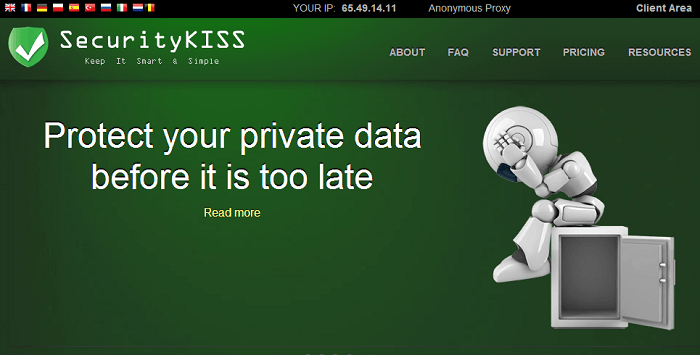The Security Kiss is a service to ensure the anonymity of a user. Every time the user in a certain by clicking here, downloads an application or makes a transaction with his credit card, SecurityKISS enables him to hide his identity from these types of processes from unwanted, unauthorized or malicious intrusions. Security Kiss is a Windows [VPN VPN] based on OpenVPN customers. There are servers located in Germany, the United States of America, the United Kingdom, Switzerland and are looking to expand to other regions.
Speeds are relatively fast depending on your location on the nearest server. It does not limit speeds and uses data compression to ensure the best possible connection.
There is a limit of 300MB(=9Gb/month) per day for free users, which will always be free, but there are also packages on payment which allow the user to choose according to his needs (packages of 20,30,50Gb/month & unlimited) 
The GUI is very basic with a logon and disconnect button, a button for changing servers and a comment button.
It also shows how much of the daily take-up rate has been used and how long before a new cycle begins. The Security Kiss insists that it does not retain the privacy of its users and only records the addresses IP, your times of connection / disconnection, and traffic volume. Uses the algorithm Blowfish 128-bit to encrypt session data and uses 1024-bit RSA certificates for the keys of the meeting.
Therefore, users can be confident that no one can monitor their data. Allows 2MB to use RAM when running (+ 3MB for OpenVPN) and is available for 32-bit but 64-bit Windows.
ΜΠΑΓΚΟΥ - ΚΟΥΦΗΣ Wikibooks.org





